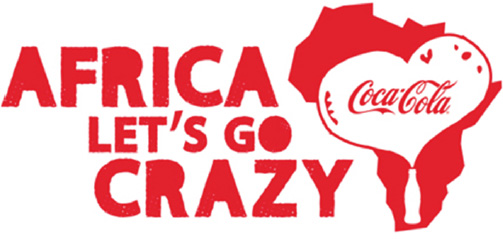PART V
I devote this, the final section of our course to the meaning of Globalization for the Nation State.
The term “globalization” is frequently used as if it were an entirely new phenomenon. But I am comfortable with this, ironically, global use of the concept because it is so vague. If we define globalization as a massive expansion in contacts among peoples and an explosion in new technologies, I’m afraid that Genghis Khan (1162-1227 AD) and Alexander the Great (356-323 BC) would be offended by being excluded. To avoid making the concept extend too far, I will merely focus on a few contemporary ways in which they world has become, as they say, “a smaller place.” To do this, I will debunk a few popular mythologies about where we are and where we are going. These are the myths of global rationality; terrorist irrationality; and our end of history.
A manifestation of globalization and the coming together of the American fabric: The Funeral of Knut Rockne and the American Experience
39. LECTURE: Wednesday, April 17
Myth #1: “The spread of global liberalism is rational.” No, it’s not always rational! Its effects are often counterproductive and destabilizing.
Assumption: We tend to associate the idea of “globalization” with the spread of our own values. It’s sheer mythology to imagine that these values are uniformly appropriate for the rest of the world.
Assignments: So, is globalization good or bad? Or should we frame the question differently?
Globalization and the Mythology of Coca-Cola WATCH
Benjamin Barber, “Jihad vs. McWorld” PRINT AND READ
John Rapley: “The New Middle Ages,” Foreign Affairs (May-June 2006) At JSTOR, then search through ProQuest Social Science Journals: PRINT AND READ
and “Attacks by White Extremists Are Growing. So Are Their Connections” READ
EASTER BREAK: Friday April 19 – Monday April 22
40. LECTURE: Wednesday, April 24
Myth #2: “Global Terrorism is irrational.” No, it’s often frighteningly rational!
Reflections on terrorism: My focus on the rational roots of inhumanity.
Sanche de Gramont, “The Transformation of Moral Idealism into Violent Revolution” PRINT AND READ
Dale Eickelman: “The public sphere, the Arab ‘Street’, and the Middle East’s Democracy Deficit”: HERE
Osama bin Laden: “Transcript of Speech,” Al Jazeera.com, Nov. 1, 2004 READ
“The French Colonialist’s Global Comeuppance,” Foreign Policy, January 2015 PRINT AND READ
 41. DISCUSSION SECTION: Friday, April 26
41. DISCUSSION SECTION: Friday, April 26
Paragraph Assignment: Has political history, as we have known it (see Fukuyama) come to an end, or are we destined to relive the conflicts of the past (see Stanley and Lee)?
For this discussion, read only Fukuyama’s Introduction and Sections 3 and 4. You should complete these readings before this section meeting:
Francis Fukuyama: “End of History,” National Interest, Summer 1989 PRINT AND READ
Timothy Stanley and Alexander Lee, “It’s still not the end of history” PRINT AND READ
42. LECTURE: Monday, April 29
Reflections on liberal democracy: My bias for hope
Today’s Assumption: It’s hard to be optimistic about the chances for global liberalism, but it’s reasonable to be hopeful.
Assignments:
Samuel Huntington: “Democracy’s Third Wave,” Journal of Democracy, Spring 1991. See JSTOR at PRINT AND READ
Knowledge@Wharton, “Lew Gerstner’s turnaround tales at IBM,” READ
Cas Mudde, “It’s fashionable to say that democracies are dying,” The Guardian, January 28, 2018 PRINT AND READ
Karen Weintraub, “Steven Pinker thinks the future is looking bright” PRINT AND READ
David Kirkpatrick, “Arab Spring, Again?” PRINT AND READ
 43. LECTURE: Wednesday, May 1
43. LECTURE: Wednesday, May 1
Myth #3: “We are the end of history.” No way! We are only kidding ourselves when we make this assumption. This attitude explains why the United States is so unpopular throughout the world.
Today’s assumption: The world is not ours to control. Still, I believe that we can take some steps to make it better for ourselves and, equally important, for others. Another way framing the issue is: On why liberalism is not enough.
My bias for perspective about our limitations.
Read these short essays in sequence and ask yourself whether each will lead us in the right direction.
Kurt Andersen, “The end of the world as they know it” READ
Kelly J. Baker, “Why I remain hopeful,” Chronicle of Higher Education READ
Alan Weisman, “The World Without Us” WATCH
Todd May, “Would Human Extinction be a Tragedy?” New York Times, December 17, 2018. PRINT AND READ
Samuel Scheffler, “The Importance of the afterlife—seriously” PRINT AND READ
Your final essay assignment is HERE: DUE Monday, May 6
¥
Ecclesiastes 9:11 “I returned, and saw under the sun, that the race is not to the swift, nor the battle to the strong, neither yet bread to the wise, nor yet riches to men of understanding, nor yet favor to men of skill; but time and chance happen to them all.
NOTE: Please do not use electronic devices of any kind during our class, including laptops, cell phones, tablets, tape recorders, FBI trap-and-trace technology or any other personal digital device. My classroom is a tweet-free zone!
